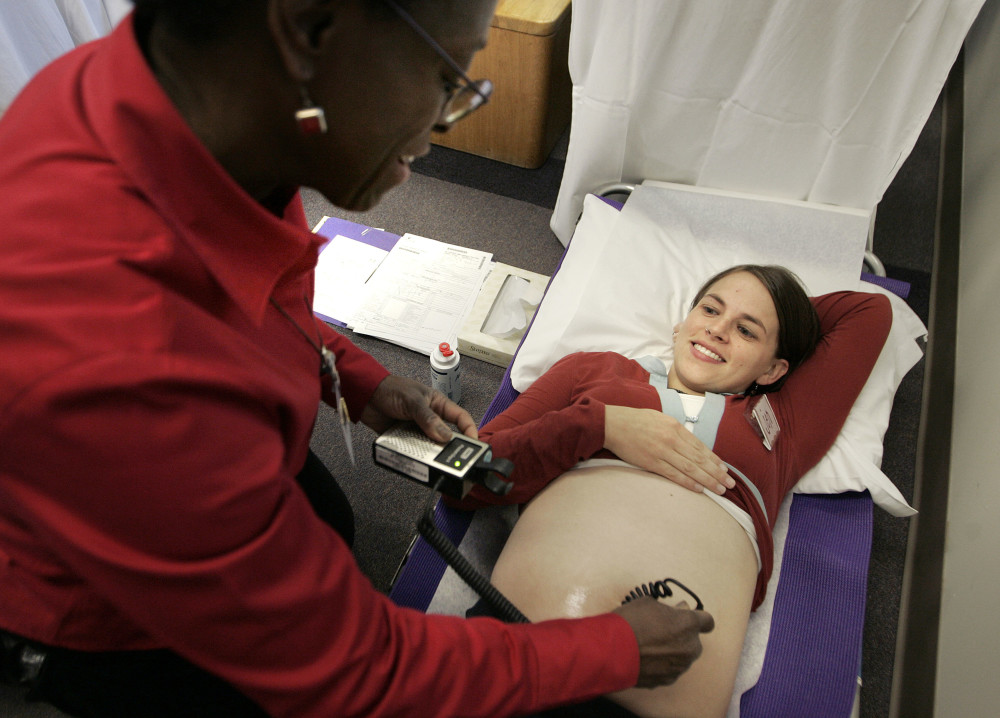By Will Buss
Belleville News-Democrat.
A new state law aims to keep pregnant women employed and help them find job opportunities.
The Illinois Pregnancy Fairness Law went into effect on New Year’s Day to protect female workers who are expecting or experiencing pregnancy-related conditions.
Pregnant women have been a protected class of worker in the Land of Lincoln for some time, but the new law requires all employers, including those with 15 or fewer employees, to make necessary accommodations for these workers.
The new law requires employers to provide rest breaks, water, bathroom and rest breaks and private non-bathroom space for expressing milk and breastfeeding. Pregnant workers also must be provided help with manual labor, job restructuring seating, temporary transfer to less strenuous or less hazardous positions, time off work to recover from childbirth-related conditions or leave necessitated by pregnancy or a related condition.
When Gov. Pat Quinn signed the new law last August, he said the legislation will fight discrimination against pregnant women in the workplace by providing job protections.
“Women should not have to choose between being a mother and having a job,” Quinn said the day he signed the bill. “This new law will provide important protections and accommodations for working mothers-to-be so that they can continue to provide for their family without risking their health or the health of their child. These common-sense accommodations will provide peace of mind, safety and opportunity for moms-to-be and also help strengthen our workforce across the state.”
But one metro-east business owner is concerned how the law will affect his and other smaller businesses in Illinois. Eric Wortham owns and operates a chain of pizzerias in the metro-east and Missouri. He said the new law dictates working conditions that businesses like his may not be able to provide.
“As a small business owner, I have to pay them through all of the days of their pregnancy, even if they can’t perform their duties,” Wortham said. “What if the employer is fast-food place or a restaurant like us and there is no place for them to sit? How does that work? What if they would have to sit there all day?”
This new law also allows these employees to reject any accommodations that they do not believes meets their needs according to their medical restrictions. Under the law, the employer must continue to work with the employee until she agrees to the accommodation and an employer cannot require an employee to take a leave if another reasonable accommodation can be provided.
Wortham said he has had pregnant employees who have been able to work throughout their pregnancy and has provided necessary accommodations. But he anticipates some workers will try to manipulate the system.
“I think it’s a great thing if they can do work and work through term,” he said. “We have had a couple of ladies who were allowed to work through term as much as they wanted to. We know they need the income to survive. Some employers don’t have maternity leave. We don’t have it. But with all of these laws they create, there are people who may try to find way to get around it and take advantage of the system. A lot problems with these laws is there are always ways to work around the laws.”
Attorney Amy Blaisdell, a partner with Greensfelder, Hemker & Gale PC in St. Louis, has been advising Illinois businesses on complying with the new law. She said the U.S. Supreme Court is debating the definition of “routine pregnancy.” A decision is expected sometime next month.
She said the new state law was designed to keep women in the workforce during pregnancy, but its definition of pregnancy seems open for debate
“The interesting thing with this is, while I think that idea is a good one, the definition of pregnancy in the new law is very, very broad,” Blaisdell said. “It defines pregnancy not only as being pregnant, but child birth or any medical common condition related to pregnancy or childbirth. The real question is going to be just how far does the law extend to? Does it entitle someone who is not pregnant yet, but maybe has had a miscarriage or had difficulty getting pregnant or undergoing in vitro or other procedures? Would they need to be accommodated with time off from work or any lifting restrictions?”














































































































































































































































































































































































